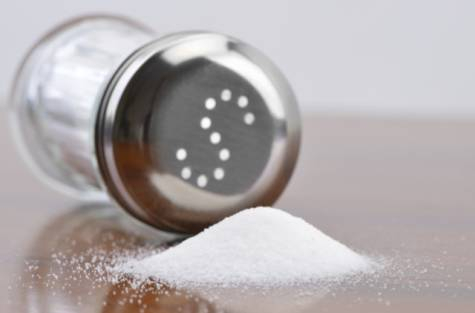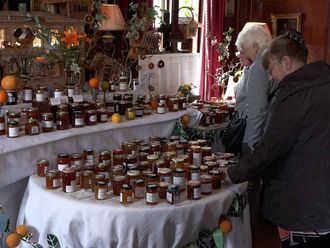
Eeating too much salt is not linked to the risk of death or heart disease among the elderly - contrary to current medical advice, say researchers.
Their study found that in those aged 70-plus there was no link between levels of salt intake and mortality, or risk of developing heart disease and heart failure.
Excess salt is a major contributor to high blood pressure, leading to heart disease and stroke.
Although UK salt consumption has fallen, the average daily intake of 8.6g remains above the target level for adults of 6g.
By 2025, the target will be 5g a day.
Study
In the US study, Dr Andreas Kalogeropoulos, of Emory University, Atlanta, and colleagues quizzed 2,642 adults aged 71 to 80 on their sodium intake.
Salt contains only 40 per cent sodium, which means, for example, 10g of salt provides 4g of sodium. The researchers then analysed follow-up data for any link between the volunteers' sodium intake and death rates, and risk of cardiovascular disease (CVD) and heart failure.
After ten years, 881 of the participants had died, 572 had developed CVD and 398 had developed heart failure. But the team found that sodium intake was not associated with death or new development of heart problems.
Death rates
Death rates at ten years were 33.8 per cent among participants eating less than 1,500mg of sodium per day, or 3.75g of salt; 30.7 per cent for those on 1,500mg to 2,300mg per day, or up to 6g; and 35.2 per cent for those eating more than 2,300mg of sodium per day.
In the US, the recommended sodium intake for adults over 50 is less than 1,500 mg per day, or 3.75g of salt.
But the researchers said more testing was needed before changing any advice to the elderly.
Some doctors and academics warned the study's method of testing was weak which meant it risked misleading the public.
Dr Tim Chico, consultant cardiologist at the University of Sheffield, pointed out that the findings were based on the volunteers' daily consumption remaining unchanged over ten years, and that this intake was `self-reported' just once, in a single questionnaire.
Multiple factors
Professor Jeremy Pearson of the British Heart Foundation said: `The study showed that risk of cardiovascular disease was not significantly different for people over 70 years old with a similar blood pressure but differing levels of salt intake. However, blood pressure can be influenced by a number of factors.
`This study does not contradict current dietary guidelines. There is global agreement that lowering the amount of salt you consume will lower blood pressure which can significantly reduce your risk of cardiovascular disease.'
















